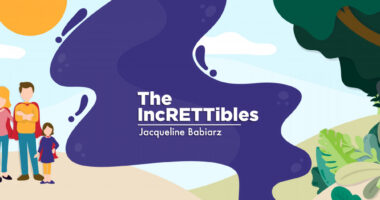People Were the Key in My Special Education Training

As my two girls finished up fifth and seventh grade, I completed my coursework in special education.
My firstborn, Cammy, who has Rett syndrome, inspired me to go back to school so I could better serve other children with special needs. Now with my master’s degree plus a Learning Behavior Specialist 1 endorsement, one thing in education remains true to me: It’s the people who make the experience.
The field experiences provided me with the most education and growth throughout this cohort. In one course, I selected an early childhood setting because I knew I would learn an incredible amount from my mentors. The two women I worked with closely were Cammy’s first teachers when she was 3 years old. Ten years later, those amazing educators, Cassi and Nicole, have still been guides for me on this journey into special education.
I had a good idea of what was taking place in the early childhood setting, but I had no idea what was involved when these educators work with little ones with special needs. The amount of love, time, and effort they pour into their work is indescribable.
Cassi is the lead teacher, while Nicole is the speech language pathologist who coordinates augmentative and alternative communication for the entire district. They communicate so often and effectively with parents, including English language learners, to get their children on a path with accommodations that set them up for success.
I also learned the tremendous toll that working with students in the early childhood setting takes on the teachers’ bodies. Some students, like my Cammy, have profound physical disabilities that require lifting and transitioning. Other students may require chasing and hand-holding for safety. All of the students need a routine, which is practiced nonstop and carried out every single day.
In my final course, I chose a middle school placement. My mentor there, Shannon, was tremendous. She took so much time to sit with me and explain curriculum-based measurements (CBMs), individualized education program goals, accommodations, and the ways to work with students and parents in certain situations. She allowed me to ask her questions in real time as they arose.
I wasn’t completely familiar with every detail of special education assessment before taking these courses. All of the data required to collect for CBMs can be overwhelming for both teachers and parents. I cannot imagine what it was like for special education teachers before these computer programs to collect and interpret data.
I learned more by connecting with teachers, students, and classmates than I did from the readings and most assignments. Brainstorming with them invigorated me. They helped me understand other ways to handle situations, students, parents, and teachers.
I’m grateful for my experiences and growth. I’m even more excited to put all of this to practice with students someday.
Note: Rett Syndrome News is strictly a news and information website about the disease. It does not provide medical advice, diagnosis, or treatment. This content is not intended to be a substitute for professional medical advice, diagnosis, or treatment. Always seek the advice of your physician or other qualified health provider with any questions you may have regarding a medical condition. Never disregard professional medical advice or delay in seeking it because of something you have read on this website. The opinions expressed in this column are not those of Rett Syndrome News or its parent company, Bionews, and are intended to spark discussion about issues pertaining to Rett syndrome.








Brandi Tanner
You rock! Thankful to have met and been a part of your journey ❤️❤️❤️
Mr. B's Brain
Great read! I agree that as a special educator, also requires you to do the extra mile while teaching which will be physically tiresome. I found this site here https://mrbsbrain.com which posts educational videos that are a big help in teaching kids with special needs. How many years does it take to finish a degree or course in special education?